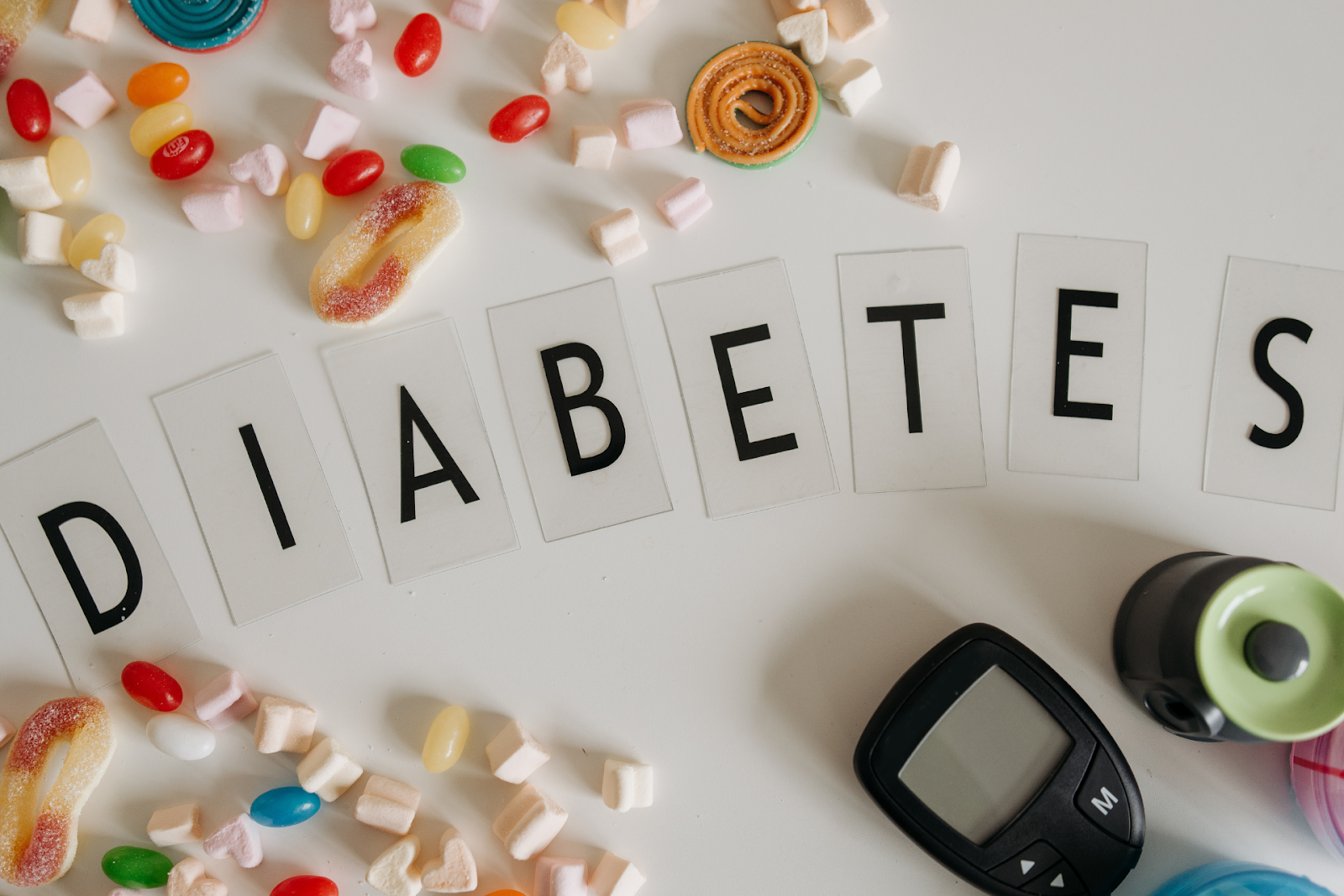Experiencing persistent fatigue and an unquenchable thirst can be more than just signs of a busy lifestyle or dehydration. These symptoms might be early indicators of diabetes, a chronic condition affecting millions worldwide. Understanding the connection between these symptoms and diabetes is crucial for timely diagnosis and management. This article explores why feeling extra tired and thirsty could signal diabetes, the importance of early detection, and how modern telehealth services from Doctronic.ai can help you get quick, reliable medical advice from the comfort of your home.
 Understanding Diabetes: A Growing Health Concern
Understanding Diabetes: A Growing Health Concern
Diabetes is a chronic disease characterized by high levels of glucose (sugar) in the blood. It occurs either because the body does not produce enough insulin (Type 1 diabetes) or because the body’s cells do not respond properly to insulin (Type 2 diabetes). According to the International Diabetes Federation, over 537 million adults worldwide were living with diabetes in 2021, and this number is expected to rise to 643 million by 2030. The increasing prevalence of diabetes is alarming, as it poses significant health risks, including heart disease, kidney failure, and nerve damage, which can lead to serious complications if not managed effectively.
In the United States alone, the Centers for Disease Control and Prevention (CDC) estimates that over 37 million people have diabetes, with many cases remaining undiagnosed. Early symptoms like excessive thirst and fatigue often go unnoticed or are mistaken for less serious issues, delaying diagnosis and increasing the risk of complications. Furthermore, the economic burden of diabetes is substantial, with healthcare costs for individuals with diabetes being more than twice that of those without the disease. This highlights the urgent need for public health initiatives aimed at prevention, early detection, and effective management of diabetes.
Why Are Fatigue and Thirst Common Symptoms?
Fatigue and increased thirst are among the most common early symptoms of diabetes. When blood sugar levels are too high, the body tries to eliminate the excess glucose through urine, which leads to frequent urination. This process causes dehydration, making you feel thirsty more often. Additionally, the loss of fluids can lead to electrolyte imbalances, further exacerbating feelings of fatigue and weakness.
At the same time, because glucose is not effectively entering the cells to be used as energy, the body feels tired and weak. This lack of energy supply to muscles and tissues contributes to the persistent fatigue experienced by many people with diabetes. Moreover, chronic fatigue can impact daily life, affecting work performance, social interactions, and overall quality of life. It is crucial for individuals experiencing these symptoms to seek medical advice, as early intervention can lead to better management of the condition and a reduction in the risk of developing more severe complications down the line.
Recognizing the Signs: When to Be Concerned
While occasional tiredness and thirst are normal, persistent or severe symptoms should prompt further investigation. Here are some key signs to watch for that may indicate diabetes:
Excessive thirst and dry mouth: Drinking more water than usual but still feeling thirsty.
Frequent urination: Needing to urinate more often, especially waking up multiple times at night to go to the bathroom.
Unexplained fatigue: Feeling unusually tired despite adequate rest and sleep.
Blurred vision: High blood sugar levels can affect the lenses of your eyes, causing vision changes.
Slow-healing wounds or frequent infections: High glucose levels can impair the body’s ability to heal and fight infections.
If you notice these symptoms, it’s important to seek medical advice promptly. Early diagnosis and management can significantly reduce the risk of serious complications such as heart disease, kidney failure, and nerve damage. Additionally, understanding your family history and risk factors can provide crucial context for your health. Genetics, lifestyle, and even ethnicity can play a significant role in your likelihood of developing diabetes, making it essential to have open discussions with your healthcare provider about your personal risk profile.
The Importance of Early Diagnosis
Diabetes is a manageable condition, especially when caught early. Routine screening through blood tests can detect elevated blood sugar levels before symptoms become severe. For many, lifestyle changes such as diet and exercise can prevent or delay the progression of Type 2 diabetes. These changes may include incorporating more whole grains, fruits, and vegetables into your meals, as well as engaging in regular physical activity tailored to your abilities and preferences.
However, timely access to quality medical care remains a challenge for many people. This is where Doctronic.ai comes into play, offering fast, affordable, and convenient access to medical professionals and AI-powered diagnostic tools. By utilizing these services, individuals can receive personalized health advice and monitoring from the comfort of their homes, which can be particularly beneficial for those living in remote areas or with mobility issues. Furthermore, the integration of technology in healthcare not only enhances accessibility but also empowers patients to take an active role in managing their health, leading to better outcomes and improved quality of life.
How Telehealth Is Revolutionizing Diabetes Care
Telehealth has transformed the way people access healthcare, especially for chronic conditions like diabetes. With the rise of digital health platforms, patients can now receive expert medical advice, diagnosis, and treatment recommendations without leaving their homes. This shift not only enhances convenience but also reduces the barriers that many face in accessing timely care, such as transportation issues or long wait times for in-person appointments.
One standout service in this space is Doctronic.ai, an AI-powered telehealth platform that combines cutting-edge medical knowledge with personalized care. Doctronic offers free AI doctor visits that provide comprehensive answers based on the latest peer-reviewed research. This service also remembers your medical history, offering a more personalized experience than traditional telehealth options. By leveraging advanced algorithms, Doctronic can analyze your health data to provide tailored recommendations that evolve as your condition changes, ensuring that your care is always aligned with your current health status.
Benefits of Using Doctronic.ai for Diabetes Concerns
Speed and Convenience: If you’re feeling extra tired and thirsty and suspect diabetes, Doctronic.ai can provide a preliminary assessment in seconds. This immediate feedback can guide you on whether to seek further testing or medical attention. The platform also allows for 24/7 access, meaning you can reach out for help at any hour, which is particularly beneficial for those who may experience symptoms outside of regular office hours.
Expertise Backed by AI: Unlike generic symptom checkers, Doctronic’s AI synthesizes the latest in modern medicine, ensuring you receive accurate, up-to-date information tailored to your symptoms. The integration of machine learning means that the platform continually improves its diagnostic capabilities, learning from new research and patient interactions to refine its recommendations. This ensures that users are not only receiving information that is relevant but also based on the most current medical guidelines and studies.
Affordable Access to Doctors: For under $40, you can have a telehealth video visit with a licensed doctor anytime, anywhere in the U.S., making it easier to get professional advice without the hassle of scheduling in-person appointments. This affordability is particularly important for individuals managing diabetes, as regular check-ups and consultations can quickly add up. By utilizing Doctronic.ai, patients can maintain their health without the financial strain often associated with chronic disease management, allowing them to focus more on their well-being rather than their healthcare costs.
Managing Diabetes: Lifestyle and Medical Approaches
Once diagnosed, managing diabetes effectively involves a combination of lifestyle changes and medical treatment. Here are some key strategies:
Healthy Eating Habits
Diet plays a crucial role in controlling blood sugar levels. Emphasizing whole grains, vegetables, lean proteins, and healthy fats while limiting processed foods and sugary drinks can help stabilize glucose levels and improve overall health. Incorporating a variety of colorful fruits and vegetables not only provides essential vitamins and minerals but also adds fiber, which can aid in digestion and further assist in blood sugar management. Meal planning and preparation can also be beneficial, allowing individuals to make informed choices and avoid impulsive eating that may lead to unhealthy decisions.
Regular Physical Activity
Exercise helps the body use insulin more efficiently and lowers blood sugar levels. Even moderate activities like walking or cycling for 30 minutes a day can have significant benefits. Additionally, incorporating strength training exercises can enhance muscle mass, which in turn can improve insulin sensitivity. Finding enjoyable activities, whether it's dancing, swimming, or joining a local sports team, can make it easier to stay active and maintain a consistent exercise routine. Setting realistic goals and tracking progress can also provide motivation and a sense of accomplishment.
Medication and Monitoring
Some individuals may require medications or insulin therapy to manage their condition. Regular monitoring of blood sugar levels is essential to adjust treatment plans and prevent complications. Utilizing technology, such as continuous glucose monitors (CGMs) or insulin pumps, can provide real-time data and help individuals make informed decisions about their health. It’s also important to have regular check-ups with healthcare professionals to discuss any concerns and to ensure that the management plan is effective and up to date.
Emotional and Mental Health Support
Living with diabetes can be challenging emotionally. Support from healthcare providers, family, and diabetes support groups can improve quality of life and encourage adherence to treatment plans. Engaging in mindfulness practices, such as meditation or yoga, can also help manage stress and anxiety associated with the condition. Additionally, education about diabetes can empower individuals, helping them to feel more in control of their health and reducing feelings of isolation. Connecting with others who share similar experiences can foster a sense of community and provide valuable insights into coping strategies and lifestyle adjustments.
When to Seek Immediate Medical Attention
While fatigue and thirst are common early symptoms, some situations require urgent care. If you experience any of the following, seek emergency medical help immediately:
Severe abdominal pain
Difficulty breathing or chest pain
Confusion or difficulty staying awake
Persistent vomiting or diarrhea
Signs of diabetic ketoacidosis (DKA), such as fruity-smelling breath, rapid breathing, or extreme weakness
For non-emergency concerns, the telehealth platform Doctronic.ai provides a valuable resource for quick evaluation and guidance on next steps.
 Taking Control of Your Health
Taking Control of Your Health
Feeling unusually tired and thirsty should never be ignored, especially if these symptoms persist. They could be early warning signs of diabetes, a condition that requires timely diagnosis and management to prevent serious health issues. Thanks to advancements in telehealth, Doctronic.ai makes it easier than ever to get fast, reliable medical advice and personalized care from anywhere in the United States.
Early action can make all the difference. If you or a loved one are experiencing these symptoms, consider using Doctronic.ai to explore your health concerns today. Empower yourself with knowledge and take the first step toward better health.
Take the Next Step with Doctronic
If you're feeling the effects of fatigue and thirst and are concerned about the possibility of diabetes, don't wait. Doctronic offers a revolutionary approach to healthcare, providing free AI doctor visits that are fast, personalized, and based on the latest medical research. Our AI-powered platform is designed to give you the most modern medical advice without the wait. With over 10 million users and growing, experience primary care that's not only smarter but truly knows you. Skip the line and talk to an AI Doctor now, for free.



 Understanding Diabetes: A Growing Health Concern
Understanding Diabetes: A Growing Health Concern Taking Control of Your Health
Taking Control of Your Health